Grants management and research administration often involve complex workflows that require significant oversight despite often-limited staff, time, and resources.
As we’ve discussed in the previous blogs in our series on The Three Pillars of Research Resilience, organizations can ease administrative workloads and increase resilience by diversifying funding opportunities and introducing effective automation to free more resources for essential tasks while maintaining accuracy and compliance.
With diversified funding and workflow automation in place, teams will be better equipped to continue their work without external disruptions and free more resources for essential tasks while maintaining accuracy and compliance. But as we’ll discuss in this blog, they’ll also need to include the third pillar of research resilience, accurate tracking and reporting, to ensure their efforts are paying off, communicate success, and plan for the future.
The impact of data tracking and reporting
You’re probably well aware that all forms of research and grants management, from healthcare and higher education to government and nonprofits, have one thing in common: the huge volume of data involved.
Tracking this data and effectively using it to build reports is an essential part of research resilience, with core benefits that fall under three major categories: resource management, accountability and transparency, and data-driven decision-making.
Resource management
Whatever role you play in the research or grants management lifecycle, your work is directly affected by the availability and allocation of resources. While the most common resources for any team are time, staff, and funding, specific roles also involve more niche resources like equipment or lab animals.
Effective resource management starts with securing the resources needed for a particular project. How much funding will you need to achieve the project’s goal? How many staff members will be involved, and what are their roles? How much time will each stage of the project require?
These questions—often required during proposal development—can take time and effort to estimate, and will depend on variable factors such as regulations and organization-specific requirements. However, keeping accurate records and reports on previous projects can help inform resource planning for new projects to get proposals submitted and approved more quickly.
Estimating resource needs and securing these resources is just the beginning. As the project progresses, your team will need to carefully monitor resource usage to ensure that every step is appropriately supported. Too few resources can result in shortfalls, delays, and overworked teams, while too many can mean wasted funds, effort, and time.
Effective resource tracking throughout a project’s lifecycle will keep your team informed of potential shortfalls or surpluses, maximizing the impact of your resources and avoiding waste while improving the accuracy of future resource requests.
Transparency and accountability
When everything is working as intended and resources are appropriately allocated, your team should operate like a well-oiled machine. However, even the best-designed machines require attention and maintenance to identify and resolve any issues.
Just like a good mechanic will use diagnostics to keep a machine running, data management, tracking, and reporting can also improve performance, transparency, and accountability for any staff involved in a project.
But what does this mean in practice? Using data and reporting to improve staff performance does not mean micro-managing or unwarranted surveillance of employees. After all, these practices are more likely to diminish morale and disrupt productivity.
Instead, teams should use data and reporting to emphasize positive performance and identify areas that need improvement without casting blame or creating friction. Openly examining processes and identifying why they work well can help improve other areas of your department and increase your staff’s pride in their jobs. Similarly, discussing workflows that aren’t performing as well as expected and seeking solutions as a team can promote accountability and trust for better outcomes in the future.
Data-driven decision-making
Better data management and report generation all lead up to a final, and perhaps most important, impact: the ability for your organization to make data-driven decisions to support continuity, growth, and success.
Reports built from reliable data are essential when making the case for your team’s effectiveness; it’s one thing to say “our project was a success”, but another entirely to back up this statement with hard data organized in an easily digestible format. This can lead to more trust in your team, more available resources for future projects, and better outcomes.
Beyond the team-level, data collection and report generation is an enormous boon for members of leadership who are tasked with steering an organization to achieve its mission while balancing opportunities for expansion against potential hazards. More accurate and accessible reporting means that leaders have more tangible evidence to support their decisions and can more effectively drive positive changes and prevent avoidable risks.
With the major impacts of data tracking and reporting covered, let’s now take a look at practices your organization should consider to improve data management and report generation.
Leveraging data and generating reports: key elements
We know data management can be overwhelming, so it often helps to look at what you want to achieve with your data and how you can make it happen. Teams should consider the elements listed below to help focus efforts for better data management and reporting:
- Centralized data repositories: Implement secure and accessible digital systems for storing all research- and grant-related data, including raw data, analysis scripts, protocols, and reports. Centralizing your data ensures accuracy by creating a single source of truth, while accessibility helps improve data analysis and reporting.
- Consistent organization: Establish consistent labeling and storage practices for your data for more accuracy and easier searches. Consistently labeled and stored data will significantly reduce time spent building reports and ensure no data is inadvertently excluded.
- Regular progress reports: Develop a system for generating regular progress reports that summarize key findings, milestones achieved, challenges encountered, and future plans. This will help keep your team accountable and on track for current and future projects.
- Research compliance monitoring: Keep your team, participants, reputation, and organization safe with standardized compliance records for IRB, IBC, COI, IACUC, and any other approvals that will affect your work.
- Comprehensive financial tracking: Maintain detailed records of all research expenditures, ensuring adherence to budget guidelines and providing a clear audit trail. This will help justify future funding allocations and keep your organization compliant with financial regulations.
- Key Performance Indicators (KPIs): Define relevant metrics to track the success and impact of research projects, such as publication rates, citation counts, patent filings, and translation to practice. A detailed portfolio will help encourage additional research and increase your team’s impact.
- Automated report builders: Generate better reports faster with software designed to analyze and leverage your data. Effective automation means that your reports will be more accurate and look great to tell a more meaningful story and make a bigger impact.
Better data management, more impactful reporting with Cayuse
The Cayuse Platform is not only designed to create a centralized digital hub for data storage across the full research and grants management lifecycle; it also includes powerful tools for data analysis and building reports in the form of Report Connector and Analytics.
Report Connector
- Secure data extraction for automated large-scale data retrieval in a specified format (.csv, .xls, .json, etc.)
- Export your data to take advantage of reporting tools like Tableau, Cognos, Power BI, and more
- Generate standardized fields in a user-friendly tabular format for simplified data queries
- Utilize the Cayuse Data Dictionary to standardize and maintain your data based on existing data models and industry standards
Analytics
- Leverage data from Cayuse Sponsored Projects with executive-level analysis and visualization tools
- Analyze your data with dedicated dashboards for Proposals and Awards
- Use Trend Analysis to view year-to-year trends and Detail Analysis to examine specific data sets
- Review your portfolio at a glance with metrics including proposal success rate, number of wins, and time from submission to success of the award
- Format data into several useful chart types and share results with snapshots


